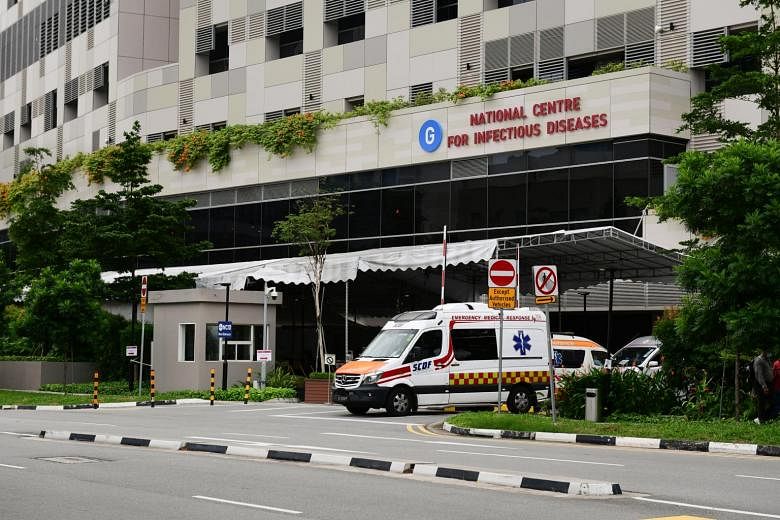There have not been any cases of reinfection among recovered Covid-19 patients in Singapore, the National Centre for Infectious Diseases (NCID) said yesterday.
And while there have been several reports from abroad about the progressive decline in the level of antibodies in recovered patients, these need to be evaluated further.
Antibodies in the human immune system help the body fight the invading coronavirus.
Professor Leo Yee Sin, the NCID executive director, told The Straits Times yesterday that "the significance of these reports and clinical implications remain areas to be studied further".
The Star newspaper reported on Tuesday that a study in Malaysia had shown that antibody levels in patients had decreased sharply three months after they recovered.
This raises questions about reinfection and the effectiveness of a potential vaccine, the report said.
It also quoted Malaysia's director-general for health, Dr Noor Hisham Abdullah, as saying that if the antibodies are not permanent, herd immunity cannot be acquired.
The body produces many different types of antibodies to fight the pathogen during an infection - but not all can neutralise the virus.
This is the role of special antibodies, known as neutralising antibodies, which can prevent the virus from infecting a patient's cells.
When asked whether declining antibody levels in a recovered patient could affect the effectiveness of a vaccine, Prof Leo said there are no definitive answers as yet and that more studies need to be done.
A vaccine works by stimulating the human immune system to mount a protective response.
The complex human immune network subsequently helps the body get rid of the virus.
Professor Ooi Eng Eong, deputy director of the emerging infectious diseases programme at Duke-NUS Medical School, said that antibodies are but one part of the immune response that would protect patients from reinfection.
"Measuring only antibodies thus misses the other half of the immune response - those mediated by killer T cells," said Prof Ooi. "Using antibody levels alone to infer immunity could thus be misleading."
Both antibodies and T cells are important elements of the human immune response against viral infections due to their ability to directly target and kill infected cells.
Separately, Singapore scientists found in another study the presence of virus-specific T cell immunity in people who have recovered from Covid-19 and severe acute respiratory syndrome (Sars), as well as in some healthy study subjects who have never been infected by either virus. Covid-19 and Sars are respiratory diseases caused by coronaviruses from the same family.
These findings suggest that in-fection and exposure to coronaviruses induce long-lasting memory T cells, which could help in the management of the current pandemic and in vaccine development against Covid-19.
The study, which involved scientists from Duke-NUS Medical School, the National University of Singapore (NUS) Yong Loo Lin School of Medicine, Singapore General Hospital and NCID, was published in the prestigious scientific journal Nature on Wednesday.
One of the authors involved in the study, NUS Associate Professor Tan Yee Joo, said the researchers have initiated follow-up studies on Covid-19 recovered patients to determine if their immunity as shown in their T cells persists over an extended period of time.
She added: "This is very important for vaccine development and to answer the question about reinfection."












